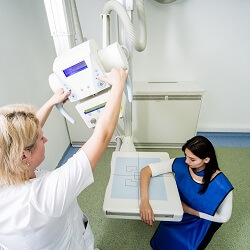What is an X-Ray Technician?
When you work as an X-Ray Technician, you should expect to meet many different types of people.
You will also take pictures of the insides of their bodies, including bones, organs, and tissue.
It’s important to have knowledge of anatomy, physiology, and medical terminology.
There are many different types of X-Ray Technicians, including sonography, MRI, and mammography.
Not only do X-Ray Technicians work in hospitals, but they also hold positions at doctor’s offices, labs, outpatient centers, and urgent care facilities.
Duties
There are many things that an X-Ray Technician must do before, during, and after giving a patient X-Rays.
Some of these duties are:
- Help situate patients
- Explain procedure to patients
- Preparing equipment
- Monitoring patient during exams
- Reporting information to doctors or medical team
- Ensuring patient safety
- Taking images of x-Rays
Salary
It is possible to earn a good salary working as an X-Ray Technician.
The average salary for this career is around $77,360 a year.
If you are just starting out as an X-Ray Technician and have minimal experience, you will typically make about $59,110 to start.
Once you gain credentials and hands-on education, you can expect to make over $100,870 in some areas.
Working in larger populations will create higher salaries.
For example, X-Ray Technicians working in Washington and Texas can expect to make over $70,000 a year on average.
However, in smaller populations like Ohio or Wyoming, it’s likely that you will make closer to $60,000 a year.
Annually National Average Salary: $79,760
Average Annual Salary by State
| State | Avg. Annual Salary |
|---|---|
| Alabama | $58,270 |
| Alaska | $90,530 |
| Arizona | $85,250 |
| Arkansas | $61,810 |
| California | $112,120 |
| Connecticut | $89,960 |
| Delaware | $83,070 |
| District of Columbia | $95,290 |
| Florida | $71,000 |
| Georgia | $73,350 |
| Hawaii | $90,260 |
| Idaho | $74,150 |
| Illinois | $78,440 |
| Indiana | $73,280 |
| Iowa | $66,730 |
| Kansas | $71,300 |
| Kentucky | $66,280 |
| Louisiana | $64,430 |
| Maine | $77,090 |
| Maryland | $82,570 |
| Massachusetts | $96,180 |
| Michigan | $71,670 |
| Minnesota | $83,650 |
| Mississippi | $55,740 |
| Missouri | $70,330 |
| Montana | $72,120 |
| Nebraska | $71,510 |
| Nevada | $94,630 |
| New Hampshire | $82,210 |
| New Jersey | $89,390 |
| New Mexico | $74,890 |
| New York | $92,080 |
| North Carolina | $70,410 |
| North Dakota | $70,490 |
| Ohio | $72,100 |
| Oklahoma | $69,020 |
| Oregon | $95,510 |
| Pennsylvania | $71,230 |
| Rhode Island | $85,920 |
| South Carolina | $66,450 |
| South Dakota | $67,850 |
| Tennessee | $66,100 |
| Texas | $75,770 |
| Utah | $79,270 |
| Vermont | $82,000 |
| Virginia | $80,940 |
| Washington | $93,960 |
| West Virginia | $69,840 |
| Wisconsin | $75,850 |
| Wyoming | $78,820 |
| Guam | $52,560 |
| Puerto Rico | $32,610 |
| Virgin Islands | $73,960 |
Annual Average Salary: Top 5 States
The top earning state in the field is California, where the average salary is $112,120.
These are the top 5 earning states in the field:
* Employment conditions in your area may vary.
How to Become an X-Ray Technician
Step 1 Enroll in a Program
Having the proper education as an X-Ray Technician is crucial.
There are several types of programs that are available to those interested in this career.
Online programs that take around one year to finish, as well as in-person classes at community colleges or technical schools, are offered across the country.
It’s important to ensure that the program you enroll in is accredited by the Joint Review Committee on Education in Radiographic Technology.
If you desire further education, it’s possible to earn an Associate’s degree as an X-Ray Technician.
You can find a variety of appropriate programs at community colleges or universities, as well as online.
An Associates degree program takes around two years to finish, and will likely require an internship and clinical lab work.
Courses in math and science will be abundant for this degree, as well as courses like:
- Nuclear Medicine Technology
- Cardiovascular-Interventional Technologies
- Pathology
- Principles of Imaging
- Medical Ethics
- Magnetic Resonance Imaging
Step 2 Become Certified
Once you earn a degree or certificate from an accredited program, it’s time to think about becoming certified.
Being certified isn’t required in every state, but it does help with career opportunities.
In order to become certified, you must pass the Registered Technologist examination.
This test is 220 multiple choice questions and can take three hours to complete.
This exam and more information can be found through the American Registry of Radiographic Technologists.
Most states require licensing before it’s legal to work as an X-Ray Technician.
Finding out licensure information through your state health organizations is the best way to gain all of the appropriate information for licensure.
Each state can vary on its requirements, but most licensures last between 1 and 4 years.
Step 3 Gain Experience
After you have your license and any certifications, you should think about gaining some experience.
This could mean volunteering, shadowing, working an internship, or even finding employment.
X-Ray Technicians can work in a variety of places, such as:
- Hospitals
- Dentist offices
- Urgent care
- Laboratories
- Imaging centers
- Doctors’ offices
- Rehabilitation centers
It’s possible to be a travel X-Ray Technician as well.
This means you will work in various locations throughout your workweek.
People who love to travel and want to take part in the medical field would be the best fit for this.
Looking for further certification and specialization in this field could require at least two years of experience as an X-Ray Technician.
Step 4 Advance Your Career
When you gain some experience as an X-Ray Technician, you will likely find that you want to graduate in your career or move on to another one.
That’s perfectly fine, and there are several ways to go about that as an X-Ray Technician.
You could earn additional certification through the American Registry of Radiographic Technologists.
Some of the certifications available are:
- Certified CT Scanner Technologist
- Certified MRI Technologist
- Diagnostic Equipment Specialist
- Radiologist Assistant
Earning a degree beyond an Associate’s can be another big step for an X-Ray Technician.
Having a Bachelor’s degree can open many more career opportunities.
This degree can take around four years to finish but can lead to jobs like:
- Radiology Administrator
- Pediatric Radiographer
- Cardiovascular Technologist
Popular Programs
Education
There is a requirement that you must enroll in a program in order to become an X-Ray Technician, however, your employer can decide how much education is necessary.
Some employers require a certificate or diploma from an X-Ray Technician program, while others prefer that their X-Ray Technicians hold an Associate’s degree.
Most X-Ray Technician programs take around one year to finish and can be found both online and on-campus at community colleges and trade schools across the United States.
Certificate programs can provide an education for entry-level positions in the medical field.
Some of the accreditation associations to look for when applying to schools for X-Ray Technicians:
- Joint Review Committee on Education in Radiologic Technology
- American Society of Radiologic Technologists
- American Association of Radiologic Technologists
Some of the topics studied in a typical X-Ray Technician certificate program are:
- Mammography
- Ct Scanning
- Radiobiology
- Positioning of patients
- Computed Tomography
Associates degrees are available for those interested in completing a program for a degree.
These programs can take two years to complete and will require in-person internships and clinical work.
There are several majors that can lead to a career as an X-Ray Technician, including:
- Radiologic Technology
- Applied Science
- Radiography
The courses that will be required in an Associates degree program will typically fall into the science and math category.
Some of the courses that you should expect include:
- Biochemistry
- Pathophysiology
- Diagnostic Concepts
- Radiographic Protection
- Anatomy
- Biology
If you are planning to further your career as an X-Ray Technician and beyond, then you may want to consider a Bachelor’s degree.
This will take you about four years to finish, and will be an in-depth look at radiographic technology, and provide access to senior career opportunities.
The job opportunities that could be available to you with further education as an X-Ray Technician are:
- MRI Technologist
- Sonographer
- Nuclear Medicine Technologist
- Radiologic Technologist
- Limited Scope X-Ray Technologist
Video About The Career
Licensing and Certification
There is a difference between becoming licensed as an X-Ray Technician and becoming certified.
Most states required that X-Ray Technicians become licensed, which requires that you take an exam and reapply every few years.
The same goes for a certification, expect this is not legally required, however, it shows your competency in the field and can help with employment opportunities.
Becoming licensed as an X-Ray Technician requires that you take the state exam.
This can vary by state, so it’s safest to contact your local hospital or college to find out more information.
Typically, you will be required to show proof of program completion and pass an exam.
Exams can cost anywhere from $200 to $400, depending on the state.
Once you have some hands-on experience as an X-Ray Technician, you may be eligible to earn certification.
There are a variety of associations that will allow you to become certified.
These associations include:
- Joint Review Committee on Education in Radiologic Technology
- American Society of Radiologic Technologists
- American Association of Radiologic Technologists
Each association has its own certifications and requirements.
The AART has the Certified Radiology Technician credential.
In order to be eligible for this certification, you must have completed an Associate’s degree program.
This certification requires that you take an exam, which will cover topics like:
- Patient care and management
- Radiologic techniques
- Positioning patients
- MRI and CT scans
The exam can have up to 220 questions and may take three hours to finish for some people.
There may also be a requirement to have a certain number of clinical work hours before being eligible to take the exam.
The other credentials require taking an exam, but often this can be determined by the association or facility that you are earning the certification through.
All certifications require recertification after 3-5 years, and this can be done by continuing your education or retaking the exam associated with the credential.
Certification Example:
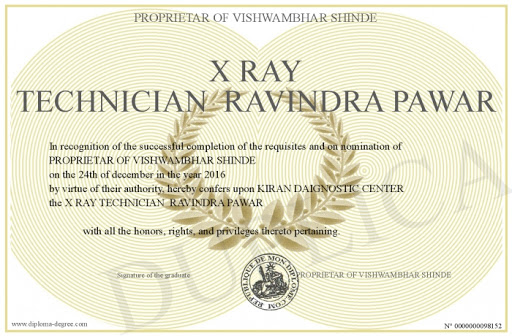
Average Training Program Duration: 1-2 Years
Earning a certificate to become an X-Ray Technician can take as little as one year, which can be done online in most cases.
However, it is important to make sure that any program is accredited and that appropriate experience is available through the program.
Most one year programs offer entry-level education, but there are some programs that can take around 18 months.
These programs can offer a little more education, and often provide an internship or other hands-on experience.
Depending on the type of school you choose to enroll in, it can take anywhere from 1 to 2 years to complete a training program.
Job Outlook
If you have an interest in working as an X-Ray Technician, now is the time to think about starting your journey.
This career is looking to grow around 9 percent over the next several years.
This projected growth is due to many reasons, including advancements in technology and the aging population.
Having more equipment and abilities through technology has made it easier to decipher X-Rays and other data.
Also, with the baby boomer generation getting elderly, this career will indeed spike.
Having credentials and experience in this field will create many more job opportunities for those who are interested in working as an X-Ray Technician.
Employment Growth Projection: 6%
2023
2033
That's a higher than average projected growth of 13,200
Should You Become an X-Ray Technician?
Overall Satisfaction: Medium

This career can have a higher stress level than many others, due to having to work with patients who are ill or in pain.
Even though it can be stressful, this career does have some good qualities.
The hours are good when working in labs or doctors’ offices but can be longer when working in hospitals.
It’s possible to gain promotions and raises fairly easily in this career, which can also lead to higher satisfaction.
There are many great things about working as an X-Ray Technician, including the salary is decent for a career that needs little education.
Average Salary: High

Working as an X-ray Technician means that you should expect a salary of around $77,360 a year.
This is true for those with an Associate’s degree and certifications, as well as some hands-on experience.
When you are just beginning your career as an X-Ray Technician, it is likely that you will make closer to $59,110.
With experience and education, an X-Ray Technician has the opportunity to make over $100,870 a year in some areas.
There are many great opportunities to be found working as an X-Ray Technician.
Job Growth Outlook: Medium

There will be a rise in this career over the next decade.
X-Ray Technicians can expect job growth of around 9 percent.
This is about average in the technician field.
With the use of technology, decoding x-rays has become easier, and not only that, but there are several more areas that can be x-rayed as well.
Working as an X-Ray Technician means that you will need to understand medical terminology as well as how to run the equipment.
If you have knowledge in the field, you can expect many more career opportunities.
Education Duration: 1-2 Years

Most X-Ray Technicians working in the United States have an Associate’s degree.
An Associate’s degree can take around two years to finish and can lead to certification as an X-ray Technician.
If you are planning to look for advancement in your career, it’s possible to earn a Bachelor’s degree in this area.
This can take another two years at some colleges, and four years at others, depending on if the school accepts past credits or not.
For entry-level X-Ray Technician jobs, expect to spend 2 years in school, and for advanced careers, it will take about 4 years.
Personal Skills Needed

Working with patients who are ill or in pain can be difficult, that is why it takes a special person to work as an X-Ray Technician.
Not only should you be wise in the medical field, but you should also have empathy and compassion for others.
Some of the other skills necessary to succeed in this career include:
- Communication skills
- Attention to detail
- Math skills
- Physical stamina
- Steady hands
- Decision-making skills
- Good judgment
- Coordination
- Patience
- Critical thinking skills
- Punctuality
- Knowledge of anatomy
Frequently Asked Questions
How much does an X-Ray Technician make?
The average X-Ray Technician will make $63,000 a year in the United States.
After several years of experience and earning credentials, that salary can jump to over $80,000 a year.
However, fresh out of school with no experience means that you should expect to make closer to $40,000 a year as an X-Ray Technician.
Those working in larger populations in larger hospitals will typically have a bigger salary than X-Ray Technicians working in small towns and smaller clinics.
How long does it take to become an X-Ray Technician?
The length of time that it takes to become an X-Ray Technician really depends on the type of education you pursue.
Some aspiring X-Ray Technicians choose to enter into a one-year program, and others decide to earn an Associate’s degree.
An Associate’s degree can take two years to finish, which can lead to entry-level careers as an X-Ray Technician.
For further promotions and raises, X-Ray Technicians typically earn a Bachelor’s degree, which can take four years to finish.
What does an X-Ray Technician do?
An X-Ray Technician is responsible for making sure that patients are comfortable and positioned correctly in order to get the best X-Ray photos of specific body parts.
Not only does an X-Ray Technician need to understand medical terminology, but they must also have math skills and customer service abilities.
These traits will come in handy when taking care of customers, taking images of body parts, and working with the equipment needed to take the photos.
There are many parts to the career of an X-Ray technician.
What is the demand for X-Ray Technicians?
It’s likely that X-Ray Technicians will always be necessary for the medical field.
This is because technological advancements have made it easier to take X-Rays, which can lead to diagnosis and treatment quicker than before.
X-Ray Technicians should expect a growth of around 7 percent in this career over the next ten years.
Another reason for this growth is that the baby boomer generation is growing older, which means that more there will be a higher need for medical intervention.
How much does it cost to become an X-Ray Technician?
In order to be a successful X-Ray Technician, it’s important to get the right education.
There are some programs that last about a year and can cost anywhere from $4,000 to $5,000.
Other programs that provide an Associate’s degree can cost anywhere from $10,000 to $15,000, depending on the community college or university that is attended.
If you are interested in earning a Bachelor’s degree, this can cost around $35,000 in some areas.
All in all, it can cost anywhere from $4,000 to $35,000 to become an X-Ray Technician.
X-Ray Technician Resources
- 14 Pros and Cons of Being an X-Ray Technician
- How Much Does It Cost to Become an X-Ray Technician?
- Online X-Ray Technician Training Programs
More Medical Careers
| Career | |
|---|---|
 | Certified Nursing Assistant Working as a Certified Nursing Assistant is an entry-level role that will give you hands-on experience when you are ready to take the next step in your medical career. |
 | Dental Assistant Dental assistants help dentists to provide patient care, keep records, and care for the dental equipment. |
 | Dental Hygienist Dental hygienists take care of cleaning teeth to promote hygiene and help avoid cavities and gum problems. |
 | Dialysis Technician Dialysis technicians maintain and monitor dialysis equipment, and also act as primary caregivers for patients undergoing dialysis treatment. |
 | Dog Groomer Dog groomers attend to grooming dogs, usually at dog salons or big pet-related chain stores. |
 | Healthcare Administrator Healthcare administrators – also known as healthcare executives or health services managers – are responsible for the planning, direction, and coordination of medical and health services. |
 | Home Health Aide Home health aides provide home care to individuals who require assistance in their day-to-day living. |
 | Licensed Practical Nurse (LPN) Licensed Practical Nurses provide basic nursing care to patients and work with Registered Nurses and Doctors. |
 | Medical Assistant Medical assistants support the work of physicians, nurses, and other health professionals. |
 | Medical Biller and Coder Medical billers and coders manage, organize, and code various health information data. |
 | Medical Technologist Medical laboratory technologists collect bodily samples and conduct tests to analyze those samples. |
 | Medical Transcriptionist Medical transcriptionists go over voice recordings to convert them into written texts. |
 | Nutritionist As a Nutritionist, you’ll be tasked with creating meal plans, counseling, and understanding dietary restrictions for all types of clients. |
 | Patient Access Representative The work involves helping people to orient themselves to the space and everything that is going on. |
 | Patient Care Technician Patient care techs work directly with patients helping them with daily activities and assist the medical staff by measuring and monitoring the patients' vital signs among other tasks. |
 | Pharmacy Technician Pharmacy technicians provide patients with medications through prescription or over the counter. |
 | Phlebotomist As a Phlebotomist, it will be your responsibility to take blood samples from patients and send them to the lab for further testing. |
 | Physical Therapist Assistant Physical therapist assistants provide physical therapy services to patients and aide to physical therapists. |
 | Professional Recovery Coach A professional recovery coach is a life coach who works with someone during their addiction recovery process. |
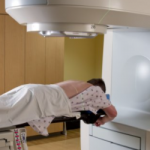 | Radiation Therapist Allied health provisional who specializes in radiation oncology treatments. |
 | Registered Health Information Technician Registered Health Information Technician (RHIT) help store and verify accuracy of health records as well as analyze patient data. |
 | Registered Nurse (RN) Registered Nurses provide hands-on patient care in various settings, mainly hospitals, and clinics. |
 | Respiratory Therapist Respiratory therapists treat and care for patients who experience breathing difficulties. |
 | Sterile Processing Technician A sterile processing technician is a healthcare professional who is responsible for preparing, sterilizing, maintaining, packaging, and storing medical tools and equipment used in surgical and other medical procedures. |
 | Surgical Technologist Surgical technologists – also known as operating room techs – prepare operating rooms and assist doctors and nurses during surgical procedures. |
 | Vet Office Manager Veterinary office managers work to make sure that the daily operations run smoothly and efficiently at veterinary hospitals or veterinary clinics. |
 | Veterinary Assistant Veterinary Assistants work closely with Veterinarians to handle routine animal care. |
 | Veterinary Technician Veterinary Technicians assist veterinarians as well as diagnosing and treating animals, mostly in private clinics. |
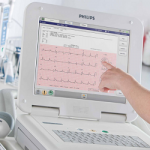 | EKG Technician EKG technicians test and monitor the cardiovascular system. |
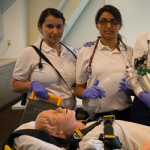 | EMT Trained emergency medical technician that arrives at the scene to provide medical services such as resuscitation. |
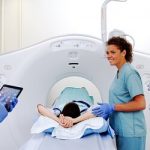 | MRI Technologist MRI Technologists use a machine to scan the body and create a detailed image of the inside for doctors to analyze. |
 | Optician Opticians are technicians and salespersons at the same time who spends most of their day talking to customers, reading prescriptions written by doctors, and dispensing glasses and lenses. |
 | Ultrasound Technician Ultrasound technicians aid physicians in monitoring and diagnosing patients through the use of ultrasonic imaging technology. |
